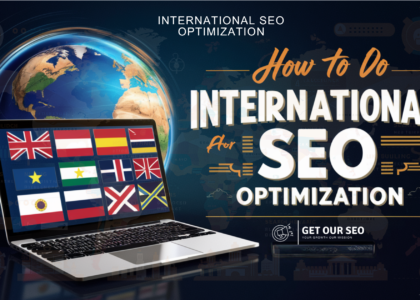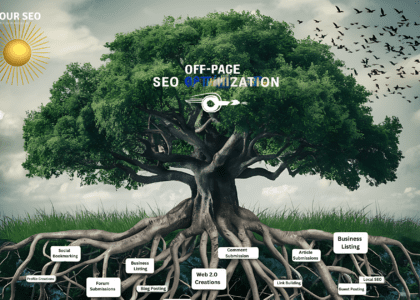Introduction to Google E-E-A-T
Google E-E-A-T, which stands for Experience, Expertise, Authoritativeness, and Trustworthiness, is a crucial framework used by Google to assess the quality and credibility of content. As the digital landscape evolves, understanding and effectively demonstrating E-E-A-T is essential for any website aiming to achieve and maintain top search engine rankings.
What is E-E-A-T?
- Experience: Measures the extent of first-hand or life experience the content creator has on the topic.
- Expertise: Reflects the author’s knowledge or skill level in the subject matter.
- Authoritativeness: Assesses how well-known and respected the content creator or website is in the field.
- Trustworthiness: Evaluates the accuracy, honesty, safety, and reliability of the content and the website.

Unpacking the Core Elements of E-E-A-T
Experience: The Foundation of Genuine Content
Experience is about real-world, hands-on involvement with the subject matter. For Google, this authentic experience is a key factor in distinguishing human-created content from AI-generated material.
Demonstrating Experience
To showcase experience:
- Use Personal Photos and Videos: Instead of relying on stock images or official photos, use your own visuals to authenticate your experience.
- Share Unique Insights: Include specific details that only someone with first-hand experience would know.
- Provide Evidence: Incorporate testimonials, case studies, or anecdotes that highlight your direct interaction with the subject.
Expertise: Knowledge and Skills That Matter
Expertise is linked to the creator’s education, skills, and standing in their field. It’s especially critical for content in fields like finance, medicine, or law, where accuracy and reliability are paramount.
Demonstrating Expertise
To build and demonstrate expertise:
- Highlight Credentials: Include author bios with qualifications, career information, and notable achievements.
- Use Expert Sources: Reference authoritative sources and provide citations to back up your claims.
- Focus on Known Topics: Write about subjects you are genuinely knowledgeable in to maintain credibility and accuracy.
Authoritativeness: Becoming a Go-To Source
Authoritativeness indicates how well-recognized and respected a content creator or website is in their field. This recognition often comes from a combination of expertise, experience, and external validation.
Building Authoritativeness
To establish authority:
- Earn Backlinks: Obtain links from other authoritative websites to signal your site’s credibility.
- Develop a Positive Reputation: Maintain high standards of content quality and accuracy.
- Build Personal Brands: Encourage authors to develop their digital profiles as experts in their fields.
- Comprehensive Content Coverage: Create detailed and comprehensive content that covers all aspects of a topic thoroughly.
Trustworthiness: The Bedrock of Reliable Content
Trustworthiness is the cornerstone of E-E-A-T, underpinning the other three elements. Without trust, content loses its value, no matter how experienced, expert, or authoritative it is.
Enhancing Trustworthiness
To improve trustworthiness:
- Ensure Accuracy: Fact-check your content rigorously to maintain high standards of reliability.
- Be Transparent: Clearly disclose authorship, sources, and any potential conflicts of interest.
- Engage with Feedback: Respond to user comments and feedback to show that you value and consider your audience’s input.
- Secure Your Site: Implement robust security measures to protect user data and ensure a safe browsing experience.
Implementing E-E-A-T in Your Content Strategy
Creating High-Quality Content
High-quality content is at the heart of E-E-A-T. Here’s how to create it:
- Thorough Research: Conduct in-depth research to provide comprehensive and accurate information.
- User Intent: Understand and address the user’s intent behind their search queries.
- Clarity and Structure: Write clearly and organize content with headings, subheadings, and bullet points for easy readability.
Practical Ways to Demonstrate E-E-A-T
On-Page Factors
- Author Bios: Include detailed biographies of content creators, highlighting their qualifications and expertise.
- Content Attribution: Clearly attribute content to its authors and provide links to their professional profiles.
- Multimedia Elements: Use images, videos, and infographics to enhance content and demonstrate experience.
Off-Page Factors
- Earn Backlinks: Develop relationships with other authoritative sites to earn backlinks.
- Social Proof: Gather and display testimonials, reviews, and case studies from satisfied users or clients.
- External Validation: Engage with industry experts and influencers to gain endorsements and mentions.
Case Study: Successful Implementation of E-E-A-T
Consider a health and wellness blog that successfully implemented E-E-A-T principles. The blog:
- Featured articles written by certified nutritionists and fitness experts.
- Included detailed author bios with links to professional credentials.
- Provided high-quality, user-generated content, including reviews and testimonials.
- Earned backlinks from reputable health organizations and media outlets.
- Maintained transparency in content creation and source attribution.
As a result, the blog saw significant improvements in search rankings and user engagement.
Conclusion
Mastering E-E-A-T is essential for creating content that not only ranks well on Google but also provides genuine value to users. By focusing on experience, expertise, authoritativeness, and trustworthiness, you can build a robust content strategy that stands out in the competitive digital landscape.
FAQ Section:
1. What is Google’s E-E-A-T?
Google’s E-E-A-T stands for Experience, Expertise, Authoritativeness, and Trustworthiness. It is a framework used by Google to evaluate the quality and credibility of content on the web.
2. Does E-E-A-T directly impact search rankings?
No, E-E-A-T itself is not a direct ranking factor. It does not function as an algorithm or have a quantifiable score that Google uses to rank websites. Instead, it provides a framework to create high-quality content that aligns with what Google rewards.
3. Are author bios necessary for demonstrating E-E-A-T?
While author bios can help demonstrate expertise and build trust, Google does not specifically use them as a ranking factor. The presence of author bios is not a requirement for achieving high E-E-A-T standards.





